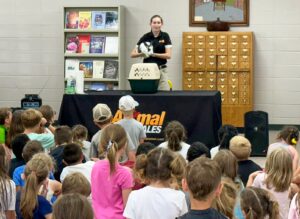The Bluegills are biting! Too early?
By Staff
April 20, 2001
The news is out. The bream are biting like it was bedding time. Everywhere I go someone is telling me about catching huge strings of bluegills – better known hereabouts as bream. At first I thought the stories were the result of cruel plans perpetrated by my "friends" who often amuse themselves by reminding me of how much good fishing I am missing during turkey season. They know it pains me to miss the early topwater bass bite, the crappie spawn and the early migration of bull bream toward their beds. Why all these outdoor marvels have to happen at the same time is a mystery worthy of a formal complaint to Mother Nature.
Anyway, they have done it again. The bream have started eating worms and crickets on the hooks of every angler on the water before the last day of gobbler season. These are the big black bream, half as long as your forearm and with faces that look like they have been smacked back inside their fat bodies.
I must wait
And because of an addiction to shrill calls at daybreak and the sound of scratchings in the leaves, I must wait; wait another week to drop a line in quiet, cool water and feel that tug that excites as if it were the first time.
But this cloud does indeed have a silver lining. For though I will arrive on the scene late, somewhere, perhaps in dozens of places, a child will drop that first line into the water and feel that tug. A grandmother will bait a hook with an earthworm and hand it to a little girl. A father will fit a cricket onto his son's hook and show him how to flip the bobber and line into the pond. The child, wide eyed with anticipation, will watch the float jiggle and will yank that first bream out onto the bank. Another angler will be born.
Big enough
The size of that first bream will matter none to the youngster. The brilliant yellow and blue creature, extracted magically from the hidden depths and now wiggling and jumping about, will excite and gratify completely. The child will punctuate the moment with squeals or nervous laughter or shouts that will long abide in the memory of the mentor. And a repeat of the thrill of the moment will be sought again and again by the child, gracing a lifetime with renewal of spirit and mind.
And so I can wait. As I listen intensely to the silence after the owl's hoot or the crow's call for the challenging reply of the kingly gobbler; as I tiptoe to my spot by the big tree on the ridge, I will think of the swirling bluegills in the shallows. But I will not despair. They are there for those who do not challenge wild gobblers. And the chunky bluegills await the moment when they will grab a sinking worm or cricket, and introduce some youngster to a lifetime of fun.










